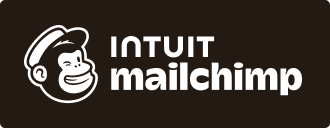Walks Abroad
View this email in your browser
Walking with Two Legs
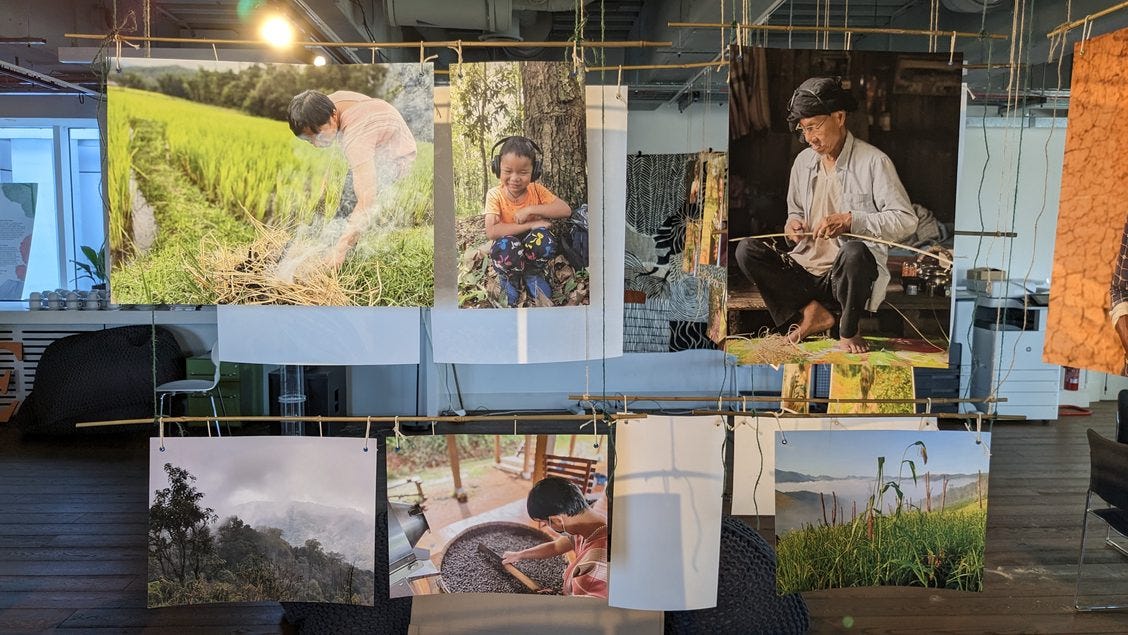
Over the past 3 years, I’ve embarked on real life and and virtual walks with my friend P’Swae of Lazy Man Coffee. He’s generously shared stories about land rights, conservation, and rotational farming. Alongside Invisible Flock, we’ve made an animation, art workshop, presentations, and a podcast with the sole intention of sharing Pgak’yau culture with the world.
Last month, we walked all over London prepping for the Land Body Ecologies Festival - a mental health and environment festival that explores indigenous knowledge, land rights, and Solastalgia, the feeling of homesickness without ever leaving home. With increasingly intense wildfires, flooding, and rising food costs, we’re all bound to feel Solastalgia sooner or later. Indigenous communities have been feeling this for centuries.
As a floating city dweller who moves every couple years, it’s hard for me to connect with this particular feeling of land loss. The last three generations of my family immigrated to new countries, started new lives, learned new languages, and assimilated to new cultures. My identity revolves around the passage of time, not land.
Living in a city often feeds into an antagonistic, hoard-y relationship with time. Hours are measured in progress and there’s never enough. Earth’s time is much slower. Rain only falls certain months, seedlings take 7 days to sprout, small cuts take 7 days to heal, and there’s no rushing that timeline. Instead of counting what goes into each hour, nature’s generative systems encourage us to be ‘lazy’, to sit back and watch the interrelated web of animals, forest, water, air, turn one seed into 300 grains at once.
P’ Swae’s father was the original lazy man. He sat back watching his garden grow 30+ different fruits and vegetables while his neighbors toiled over a few cash crops. They reaped profits while his father got scolded for being lazy. One year, demand plummeted and the neighbors were burdened with surplus cash crops and no buyers. His father, on the other hand, had a bountiful garden and plenty of naturally occurring bamboo to sell. Lazy wisdom paid off.
Swae taught me that the rapidly changing globalized and slow moving traditional worlds represent two legs. In order to walk forward, they need to work together. Land Body Ecologies is one exploration into what that looks like.
“When we drink water, we must take care of the water. We use the soil, we take care of the land. We use the air, we take care of the earth.”
London-town

Everyday, we walked around London making observations about the buildings, the amount of doors here, how no one is from here, etc. All the doors in the festival building required key card access. P’ Swae wondered if it stressed people out to always be reminded of places they can’t go. I’m sure it adds to it.
Outside buildings, the parks are lovely. Coming from Bangkok where there are only 2 parks, it’s nice to have that outdoor space for a sandwich with friends. Which reminds me…P’ Swae mentioned city people always compare. He is correct.

British Museum
On our first day, we museum hopped looking for Thai artifacts of British colonialism. Even though Thailand was never officially colonized, many Karen seniors worked for the British logging industry.
Despite centuries of British colonialism in Southeast Asia, all we found was one Burmese Buddha statue. A colleague mentioned SEA colonialism is not as well known so they don’t advertise.
The collection is so vast, I wondered if it was all stolen.
‘Once they have your land, what’s one more thing’
Land Body Ecologies Festival
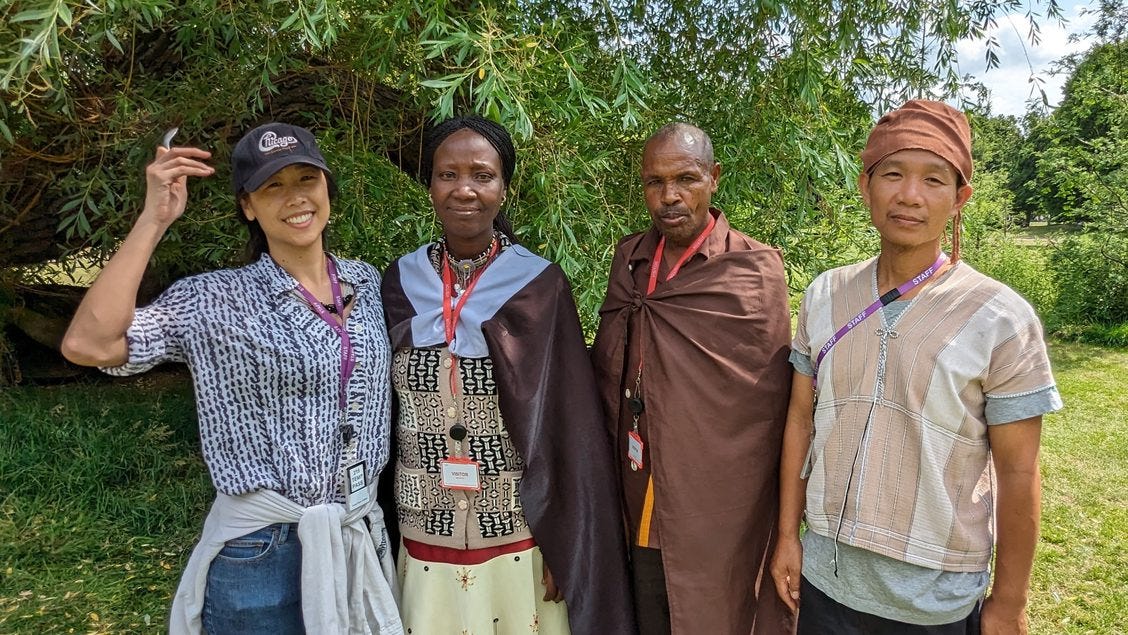
Before the festival, we gathered with other hubs at the LBE picnic where I met Emily, John, and Samson (not pictured) of the Ogiek community in the Mau Forest, Kenya. When I met Emily, I told her how much I loved her necklace. She took it off her neck and gave it to me. I was so touched and immediately looked for something to give her in return. P’ Swae suggested I think about it.
‘If you try to pay it back immediately, the gift becomes a debt. Once that debt is paid off, you forget about it and maybe forget about them. But if you receive the gift without immediately repaying it, maybe you’ll really go to Kenya one day and give her a gift then.’
I’d love to go someday. There’s so much to learn from the Ogiek, who are among Africa’s last remaining forest dwellers. Ogiek rights over their traditionally owned lands have been systematically denied and ignored, while the government has allocated land to third parties, including political allies, and permitted substantial commercial logging to take place without sharing any of the benefits with the Ogiek. Same story in Thailand.
In 2009, the Ogiek, represented by Minority Rights Group International (MRG, part of the LBE core team), the Ogiek People Development Program (OPDP) and the Centre for Minority Rights Development (CEMIRIDE) approached the African Commission on Human and Peoples’ Rights (the Commission) with their grievances. In 2022, the Court delivered a reparations judgment that represents a hard-won victory after decades of dispossession, non-recognition and marginalization.

P’ Swae uses coffee, food and Pgak’yau (Karen) recipes to engage people about rotational farming, a method of regenerative agriculture where farmers grow rice on rotating plots of lands. Every year, community members cut down trees, burn the ground, grow/harvest produce (rice, sesame, gourds, pepper, tomato, anything), then leave the field fallow for 7 years and move onto another plot. At the end of 7 years, each plot regenerates into a forest and the cycle continues. It’s carbon negative and great for soil health, yet the Thai government has heavily restricted the practice in the name of ‘conservation’.



The incredible team at Land Body Ecologies and Wellcome Trust set us up in a commercial kitchen to make Meitau, Meitophi, Depawpaw, and P’Swae’s light, medium, and dark roast coffees. Recipes to come later.

We all got our hands dirty and talked as if we we were gossiping in the kitchen. I learn so much from these workshops and feel honored to take part, but sometimes I can’t help but wonder about the immediate impact of this time. What can engagements like these do for indigenous communities being forced from their land right now?
While impact is a nice goal, forcing it feels gross and savior-y. Leaders like P’Swae and the other hubs have been advocating for their communities for decades. These gatherings are just one part of a broader effort, and we can't predict where it'll lead. Linear progress is a colonial concept anyway – we plant seeds and watch them grow.
People are flooded with climate dread, but we can still talk about climate crisis’s human impact by sharing how rice grew this year, or how heavy rainfall led to fungi. Even though this year's harvest was smaller than usual, there's always enough to share. Food connects us to Earth time, reminding us of how we can care for one another. Pass your bowl.
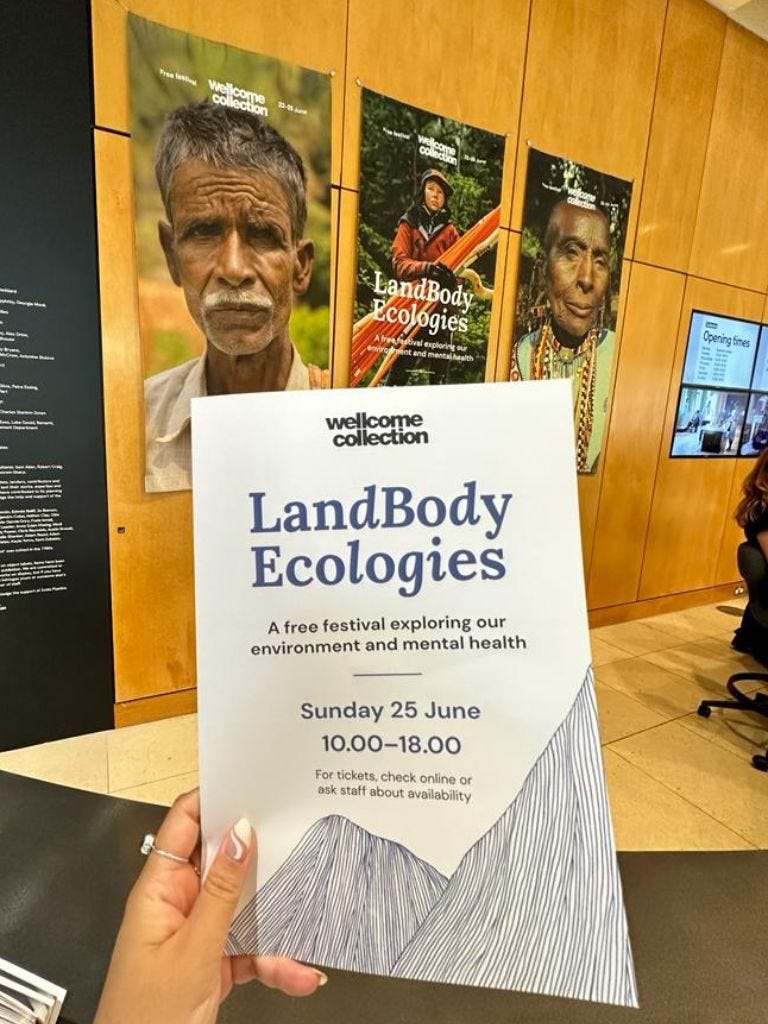
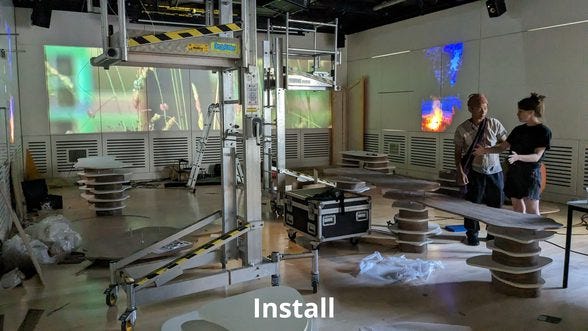
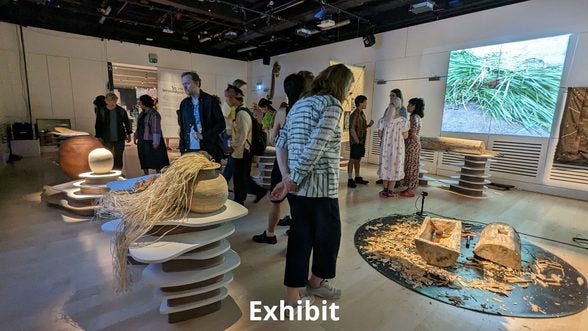

Now that the festival is over, I’m spending some time thinking through next steps. No answers yet, but currently studying partial common ownership as a method for creating and sharing benefits collectively. More to come.
In admin news, Mailchimp is a pain so I’m migrating to Substack.
Toodles
Want to change how you receive these emails?
You can update your preferences or unsubscribe
